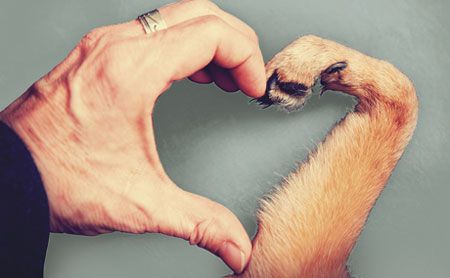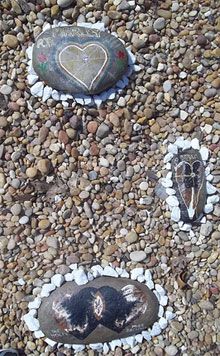Pet loss: Help heal their hearts
Why you need a bereavement coordinatorand how it helps your veterinary team.

Shutterstock.com
When clients give you their hearts-in the form of their furry little friends-how do you care for them? My suggestion: Consider a bereavement coordinator. This team member's job is to oversee the transition of all patients who've passed away.
Clients undergoing their first experience with the passing of a beloved companion often don't know the available aftercare options. And many clients don't realize they can have a full-fledged funeral, complete with the viewing of their companion's body, memorial service and burial.
Here's how you can help guide pet owners through their options and ease the transition as they say goodbye to their loved one.
Pave the path
What does a bereavement coordinator do? To start, when the client comes into your clinic with their companion in an end-of-life situation and the veterinarian isn't available-whether it's an emergency or a scheduled euthanasia-the bereavement coordinator meets with the client. She reviews the clinic's aftercare protocol, explains the aftercare options with the client and assists with the paperwork.
The bereavement coordinator also answers clients' questions about the aftercare facility itself, provides the client with information on pet loss support groups and offers additional reading on pet loss, death, grief and related topics.

At Red Barn Veterinary Hospital, when a pet passes on the veterinary team presents pet owners with a personalized stone to place in their memorial garden. Read more here. Perfect a process for aftercare
Will you work with one crematorium or offer freedom of choice? Remember that when it comes to aftercare some clients may have very specific wishes, and they may want to use a facility they feel will carry out their wishes the best. The bereavement coordinator stays in constant contact with the crematorium's team members. She also makes sure that the patient is transported on schedule, keep records of the transports-these are considered part of the patient's medical record-and contacts clients once their pet's cremains have returned to the clinic.
It's also a nice gesture to offer keepsakes to clients at the time of their companion's passing. This may include hair clippings, clay paw impressions or nose and paw ink prints.
Some clients will have second thoughts
Sometimes clients call after they've left the clinic and say they've changed their minds and would like to pick up their pet's body. Generally the procedure after a patient passes is to "bag it, tag it and send it off to cold storage.” Unfortunately this means the pet may not be in the best shape to be picked up. That's when your bereavement coordinator steps in to schedule the pickup and prepare the pet.
My pro tip: As a bereavement coordinator, I believe that when a pet passes away its body should still be handled with care and treated with dignity. When I'm prepping a deceased patient that's been in cold storage for quite some time, I make sure the pet has been thoroughly thawed, bathed and blow-dried. You never know if the clients will open the coffin after they leave your practice. And if it were me, I know that I wouldn't want to open a coffin and see my pet looking a mess.
All living things let go of bodily fluids once they've passed, and it still happens after they've been thawed. Smells can also be unpleasant and traumatizing to clients. Depending on the circumstances of the pet's passing, there are times you'll want to ask clients not to open the coffin-for example, the pet that came in on emergency after being hit by a car. Sometimes it's best for pet owners to remember their beloved companions as they were before.
Be a resource for your team
Bereavement coordinators also serve as an outlet for team members when their own pets pass away. Ideally, the bereavement coordinator will also work with management to organize team support groups.
Working at a 24/7 emergency and trauma, specialty referral and general practice animal hospital, our team sees a large volume of death. We also deal with clients who don't claim their pet's remains. And as animal lovers it's sometimes hard to fathom the thought of someone just, in a sense, forgetting their pet's body is in cold storage at the veterinary hospital.
The risks of developing compassion fatigue and burnout are high in any animal care field, and it's important to regularly touch base with your team members on how they're doing physically and mentally. For example, it's a good idea to ask a local social worker or mental health professional to be on call to facilitate monthly team meetings or as a go-to person for team members to call or meet with.
Employing a bereavement coordinator who's dedicated to the patient's aftercare also shows your current and future clients that your clinic is compassionate and cares about what happens after a patient passes away. To prepare for my role I took a course on the bereavement process to hone my communication skills. To be effective in this role you must be able to handle the difficult cases and also face fellow team members who sometimes don't understand just how important the job is. And you must constantly advocate for protocols and team training that highlights importance of deceased patient care.
Remember, pet owners are giving you a piece of their heart when they trust their pet's end-of-life experience to you. Treat the process with compassion and respect and you can demonstrate how much you value all of your patients, both when they're alive and after they pass on.
Stephanie N. Ferrara is the bereavement coordinator at Oradell Animal Hospital in Paramus, New Jersey.
